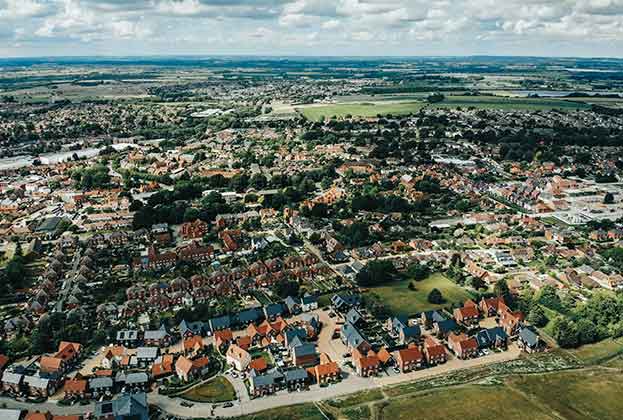The city is at the heart of an expanding life sciences ecosystem
Writing about Oxford’s current strengths leads to the question: “what next?” What is required from the residential and commercial property markets to ensure that Oxford delivers economic growth for the UK?
Oxford’s reputation has to a large extent been driven by the quality and global recognition of the city’s academic institutions. The University of Oxford has been named the world’s best university for the seventh year in a row by the Times Higher Education World University Rankings; Oxford is ahead of Harvard University in second place, and Cambridge and Stanford University in joint third.
During the past few years, the power of the Oxford brand has been a consistent talking point on the calls and meetings we have had with overseas real estate investors. While a relatively small ecosystem in absolute terms, the level of life science-related venture capital (VC) raised in Oxford is strong when adjusted for a per-capita basis – close to Cambridge (UK) and Boston, is well ahead of San Francisco and London.
The Global Innovation Index (GII) report performing a similar analysis came to a similar conclusion, listing Oxford as one of the three key science and technology (S&T) clusters in the UK. On a global basis, Oxford is 78th, having risen from 88th place since 2017. In comparison, Cambridge is currently ranked 62nd, unchanged from 2017. Most tellingly, when reviewed on a population-adjusted basis, the Oxford science and technology ecosystem is placed 5th in the global Top 100.
There are many international comparisons and metrics, but the chart below shows the stages or ‘rounds’ of investment for the last few years into life science companies. It is interesting to see that Oxford has the highest share of later-stage VC fundraising. This is a key indicator of the maturity and ongoing success of companies in and around Oxford, and indicates a likelihood to require additional real estate, including laboratories, offices and industrial.
Overall, the strength of Oxford’s later-stage companies is clear. However, Oxford must continue to grow the early-stage pipeline - the companies of the future. This will enable a strong globally-renowned ecosystem to grow.
Science cities
The limited availability of affordable housing threatens to leave Oxford less competitive compared to its international peers. Oxford was identified as the ninth least affordable city, in a basket of 20 leading global cities for scientific research identified by Savills World Research, with the average rent for a two-bedroom apartment in Oxford equalling 49% of the average gross income for a scientific researcher. Although more affordable than Cambridge or London, Oxford compares unfavourably against international comparisons, with many cities including Boston, Seattle or Shanghai, offering better value for money.
Key takeaways
- Oxford ranks 5th in the global top 100 for its science and technology ecosystem.
- Growing the number of early-stage companies raising capital is a key growth ambition going forward for Oxford. The prospects for Oxford to do this are good.
Read the articles within Oxford: A global competitor below.
.jpg)


